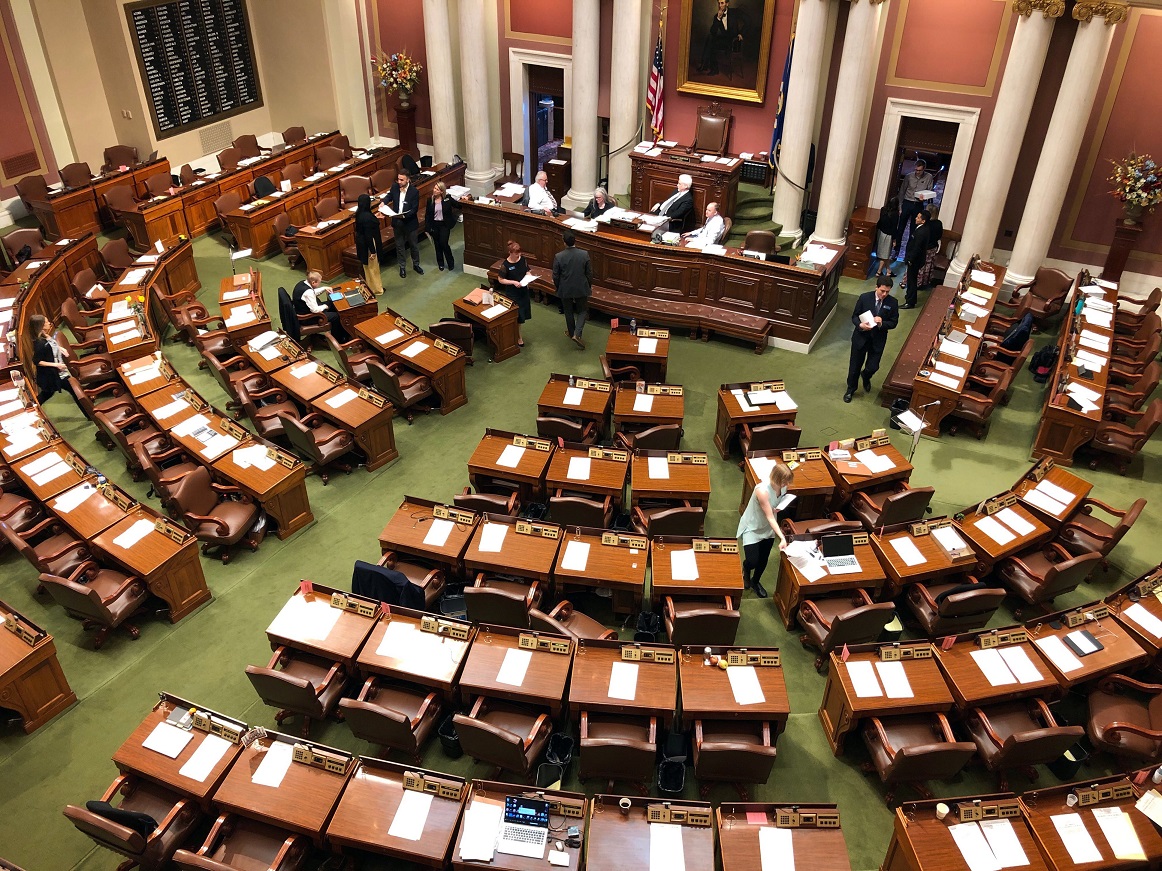Minnesota
Minnesota House Democrats look to cut taxes for some, raise taxes on others and increase spending on education, COVID recovery

MINNEAPOLIS (AP) — Minnesota House Democrats unveiled legislation on Monday that calls for more spending on education and recovery for those most affected by the pandemic while increasing taxes on wealthy residents and large companies.
The package of bills follows the $52.5 billion budget targets released by House Democrats late last month, which is more than both Democratic Gov. Tim Walz’s proposal and the Senate GOP proposal.
The legislation would provide more than $1 billion in tax cuts for workers, families and small businesses while raising taxes on the wealthy and companies that profited during the pandemic to pay for investments in education and COVID-19 recovery efforts.
The tax bill echoes Walz’s proposal by expanding the state’s Working Family Tax Credit and creating a fifth tax bracket with a rate of 11.15% for incomes over $1 million for a couple filing jointly. The bill also includes a tax exemption for businesses that received up to $350,000 in federal Paycheck Protection Program loans, which lawmakers say would include 90% of Minnesotans who received the loan, and tax relief on up to $10,200 of unemployment benefits received by workers.
“The fifth tier is also to try to address the great disparities income-wise that this COVID-19 has brought,” said House tax committee chairman Rep. Paul Marquardt, of Dilworth. “It’s a bill that creates more tax fairness but provides the important investments in COVID-19 recovery and investments into the future.”
The education budget bill — which includes $722 million in new spending for K-12 — features increases in funding for preschool and school districts, as well as several measures aimed at recruiting an retaining teachers of color while improving school environments for teachers and students of color.
The package also includes earned safe and sick time, emergency paid leave for health care workers, and health and safety protections for meat and poultry processing workers. Other measures would provide grants to businesses that lost revenue amid the pandemic, as well as other investments in businesses in underserved communities.
Senate Republicans oppose any new tax increases, citing the state’s projected $1.6 billion surplus and around $4.8 billion in federal aid coming to the state via President Joe Biden’s $1.9 trillion stimulus package. GOP Senate Majority Leader Paul Gazelka, of East Gull Lake, called the creation of a fifth tax bracket “a bad idea,” and reiterated his call for tax exemptions on all PPP loans.
“In Minnesota, you’re probably aware that we are one of the highest-taxed states in the whole country, and yet Democrats in the House say ‘we need more, we want more taxes,’” he said in a video response on Facebook. “That’s the last thing we need right now.”
The budget bills mark the latest step in budget negotiations as Walz and leaders in the divided Legislature work to craft a budget before the end of the legislative session in mid-May. The bills are expected to move through committees this week before making it to the floor later this month. The next deadline for committee approval of the budget bills is Friday.
Mohamed Ibrahim is a corps member for the Associated Press/Report for America Statehouse News Initiative. Report for America is a nonprofit national service program that places journalists in local newsrooms to report on undercovered issues.

